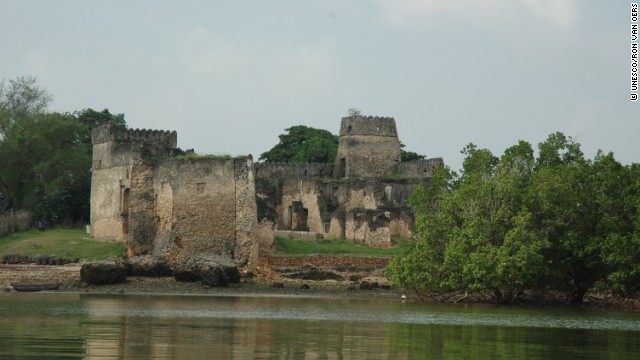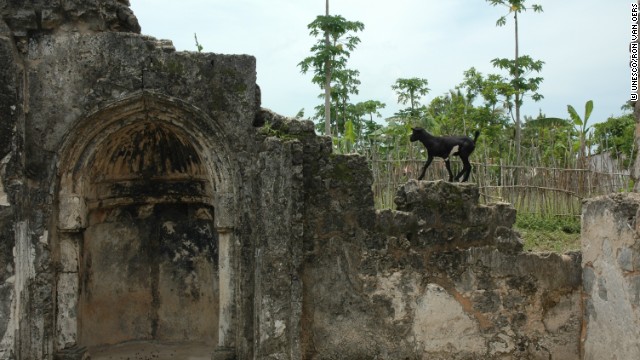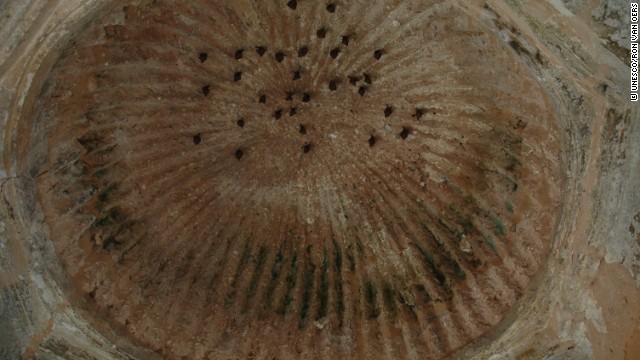It looks like you're using an Ad Blocker.
Please white-list or disable AboveTopSecret.com in your ad-blocking tool.
Thank you.
Some features of ATS will be disabled while you continue to use an ad-blocker.
3
share:
SOURCE
SOURCE
I realize that this topic has been touched on before, but the SOURCE article has some neat photos of where the coins were minted...
( ... a few examples: )

Kilwa -- full name Kilwa Kisiwani -- is a former city-state that rose to become one of the most dominant trading centers on the coast of East Africa in the 13th and 14th century.

"From the 1100s to the 1300s, Kilwa was the most prominent port in the entire east African coast, bigger than Mombasa, Zanzibar and Mogadishu," says professor Ian McIntosh.

The mosque's great domes, some of which were decorated with porcelain from China, dates from the 13th century.
What does everyone think about this? I'm eager to get more information on this intriguing turn of events, if such info. is even available...
(CNN) -- Can a handful of ancient copper coins from a once-opulent but now abandoned corner of East Africa change what we know about Australian history? A team of researchers is on a mission to find out. With its glittering wealth, busy harbor and coral stone buildings, the island of Kilwa rose to become the premier commercial post of coastal East Africa around the 1300s, controlling much of the Indian Ocean trade with the continent's hinterland. Situated in present-day southern Tanzania, during its heyday Kilwa hosted traders from as far away as China, who would exchange gold, ivory and iron from southern Africa's interior for Arabian pottery and Indian textiles as well as perfumes, porcelains and spices from the Far East. But the Kilwa sultanate's heyday came to a crashing end in the early 1500s with the arrival of the Portuguese who sacked the city in their bid to dominate the trade routes between eastern Africa and India.
SOURCE
I realize that this topic has been touched on before, but the SOURCE article has some neat photos of where the coins were minted...
( ... a few examples: )

Kilwa -- full name Kilwa Kisiwani -- is a former city-state that rose to become one of the most dominant trading centers on the coast of East Africa in the 13th and 14th century.

"From the 1100s to the 1300s, Kilwa was the most prominent port in the entire east African coast, bigger than Mombasa, Zanzibar and Mogadishu," says professor Ian McIntosh.

The mosque's great domes, some of which were decorated with porcelain from China, dates from the 13th century.
What does everyone think about this? I'm eager to get more information on this intriguing turn of events, if such info. is even available...
edit on 30-6-2013 by EzekielsWheel because: to add
edit on 30-6-2013 by EzekielsWheel because: to add
It has been covered, thanks for posting it tho! I wouldn't have known if you hadn't put this up.
What has it got to do with Australia?
well now I know.. Oo
But interest in this nearly forgotten East African city has resurfaced lately thanks to the mystery surrounding a remarkable discovery thousands of miles away, in a long-abandoned, remote chain of small islands near Australia's Northern Territory.
well now I know.. Oo
edit on 30-6-2013 by winofiend because: (no reason given)
Originally posted by EzekielsWheel
SOURCE
(CNN) -- Can a handful of ancient copper coins from a once-opulent but now abandoned corner of East Africa change what we know about Australian history? A team of researchers is on a mission to find out. With its glittering wealth, busy harbor and coral stone buildings, the island of Kilwa rose to become the premier commercial post of coastal East Africa around the 1300s, controlling much of the Indian Ocean trade with the continent's hinterland. Situated in present-day southern Tanzania, during its heyday Kilwa hosted traders from as far away as China, who would exchange gold, ivory and iron from southern Africa's interior for Arabian pottery and Indian textiles as well as perfumes, porcelains and spices from the Far East. But the Kilwa sultanate's heyday came to a crashing end in the early 1500s with the arrival of the Portuguese who sacked the city in their bid to dominate the trade routes between eastern Africa and India.
SOURCE
I realize that this topic has been touched on before, but the SOURCE article has some neat photos of where the coins were minted...
( ... a few examples: )
Kilwa -- full name Kilwa Kisiwani -- is a former city-state that rose to become one of the most dominant trading centers on the coast of East Africa in the 13th and 14th century.
"From the 1100s to the 1300s, Kilwa was the most prominent port in the entire east African coast, bigger than Mombasa, Zanzibar and Mogadishu," says professor Ian McIntosh.
The mosque's great domes, some of which were decorated with porcelain from China, dates from the 13th century.
What does everyone think about this? I'm eager to get more information on this intriguing turn of events, if such info. is even available...edit on 30-6-2013 by EzekielsWheel because: to addedit on 30-6-2013 by EzekielsWheel because: to add
I am waiting for updates there is supposed to be more investigation taking place this month but yeah we have a thread on this www.abovetopsecret.com... and an entirely different find 400yrs later on 600 yrs old Chinese coins found on Malandi www.abovetopsecret.com... you are welcome to contribute..
edit on 2-7-2013
by Spider879 because: (no reason given)
Hello,
I was supposed to go over the books my ancestor wrote but I just don't have time right now between school and work. If it helps at all, his name is William Dampier. There is a TON of info out there and no doubt you can find his books/journals somewhere in .pdf format.
Here's a map of his that shows a route to the northern area of Australia. He was certainly involved in trading with numerous countries in that era.
I really wish I had more time right now to do this as his story is really pretty crazy. My dad actually mapped out a good part of his travels on Google Earth, I wonder if there is a way he can send me all the locations or whatever he did. Pretty crazy seeing stuff Dampier wrote about in the book and then seeing it for real hundreds of years later and you can tell it's exactly what he's talking about.
I was supposed to go over the books my ancestor wrote but I just don't have time right now between school and work. If it helps at all, his name is William Dampier. There is a TON of info out there and no doubt you can find his books/journals somewhere in .pdf format.
Here's a map of his that shows a route to the northern area of Australia. He was certainly involved in trading with numerous countries in that era.
I really wish I had more time right now to do this as his story is really pretty crazy. My dad actually mapped out a good part of his travels on Google Earth, I wonder if there is a way he can send me all the locations or whatever he did. Pretty crazy seeing stuff Dampier wrote about in the book and then seeing it for real hundreds of years later and you can tell it's exactly what he's talking about.
new topics
top topics
-
What if this is true?
2024 Elections: 13 hours ago, 13 flags -
Ed Dowd some good news
Medical Issues & Conspiracies: 12 hours ago, 7 flags -
Merry-Go-Round Ride
Short Stories: 15 hours ago, 6 flags -
Anyone like the Scorpions?
Music: 12 hours ago, 4 flags
3
